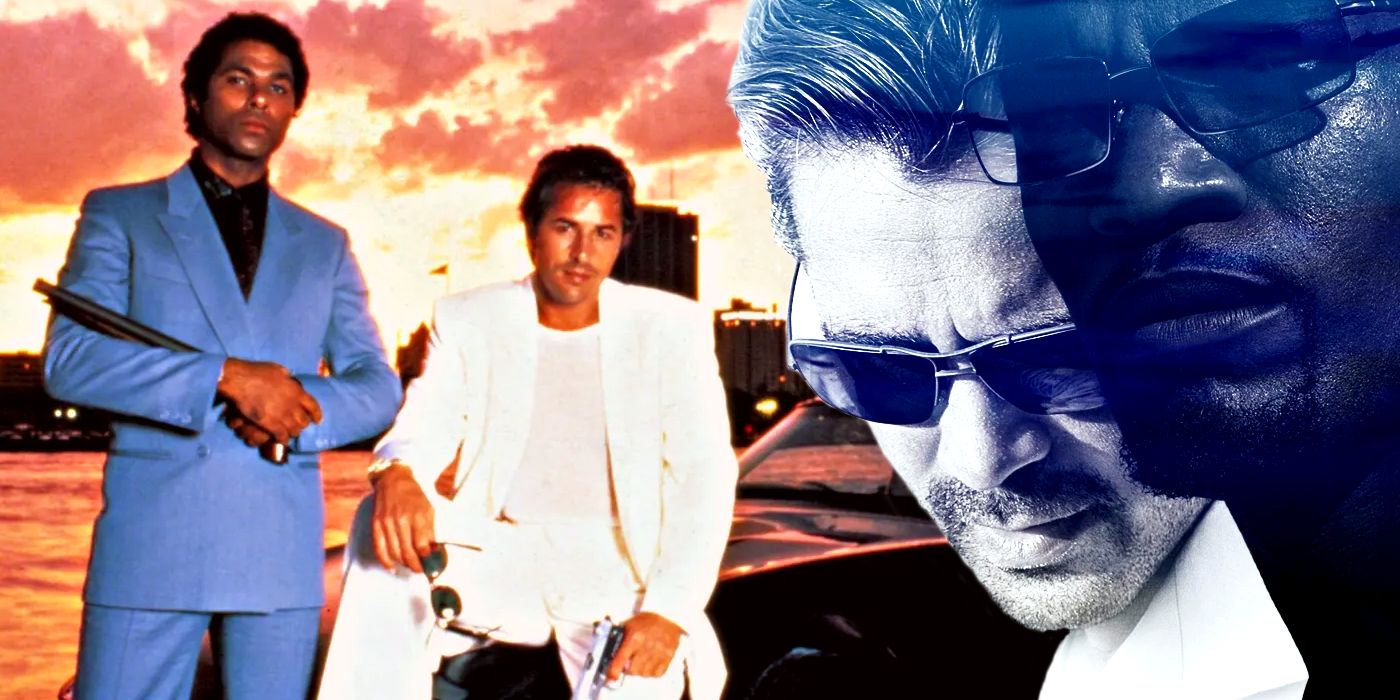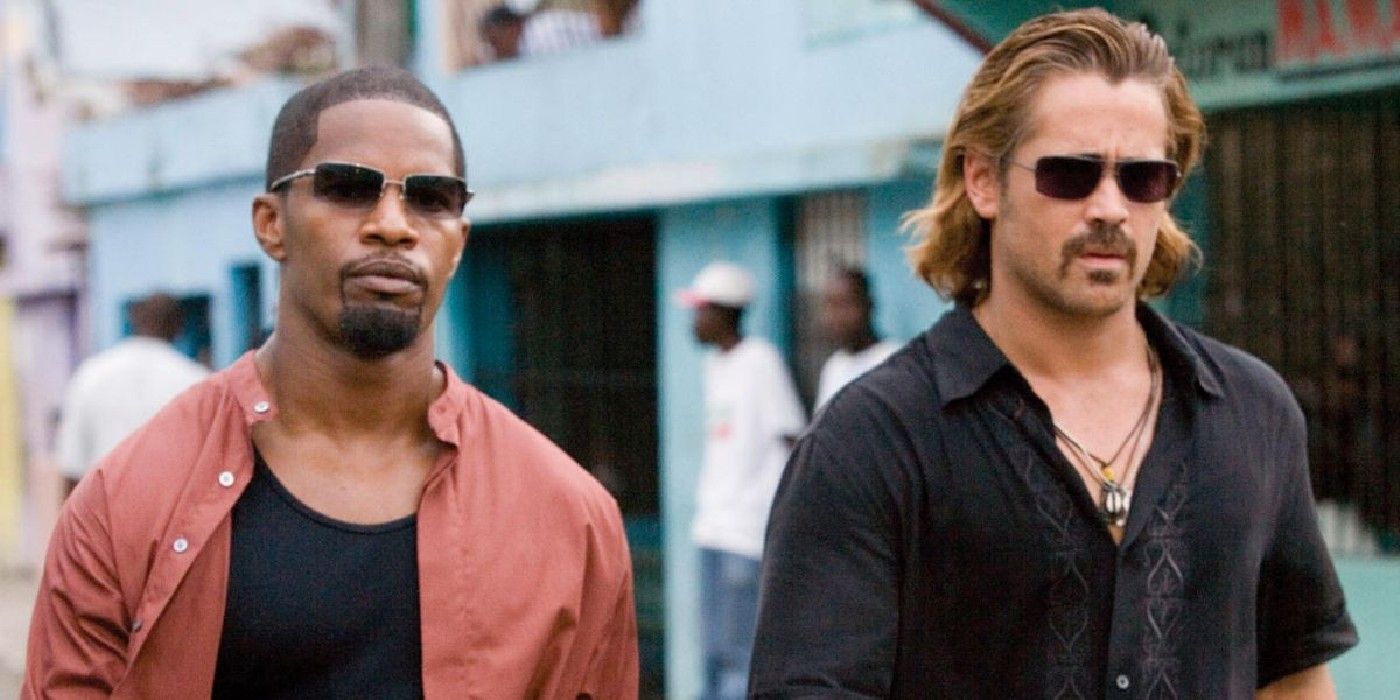Despite a mixed initial reception, Michael Mann's 2006 crime thriller Miami Vice actually saved the long-established franchise. Although very popular at the time, by the mid-2000s, Miami Vice, the 1980s TV series which Michael Mann executive produced, looked dated. Star Don Johnson's pairing of T-shirts with pastel suit jackets had fallen so far out of fashion as to look ridiculous, while the show's trailblazing visuals, once hailed as glossy, had begun to look grainy. Although it was not received well by critics or audiences, Mann's big-screen reboot of the franchise breathed new life into Miami Vice, creating a gritty action thriller that stands up today as one of his best films.
When the Miami Vice TV series first aired, it reinvigorated the cop show format. Audiences had become used to cop shows that looked drab, like Hill Street Blues, but here was a series that looked bold and colorful. MTV videos were a key influence on Miami Vice's cinematography and production design; indeed, the elevator pitch for it was described as "MTV cops." However, as with any show seeking to showcase the state of the art, as opposed to aiming for timelessness, once the architectural styles and fashions on display in Miami Vice had fallen out of favor in the 1990s and 2000s, the corniness of many of its scripts and characters became apparent.
When Michael Mann came to reboot Miami Vice, then, he sensibly decided to swim against the 00s tide of big-screen reboots of classic TV shows that were sillier than their source material, like Charlie's Angels. The film had a somber tone that was well-reflected in its preponderance of nighttime scenes. Although Mann had been shooting on digital video since Ali, Miami Vice featured his strongest, most apt utilization of it, due to modern technology's centrality to the plot. This tonal shift, coupled with bold directorial and stylistic decisions, provided an essential update to the Miami Vice series, revitalizing it for a modern audience in a way that has only improved with age.
A good example of the film having been more serious than the Miami Vice series lay in the characterizations of their respective informants. In the series, Izzy Moreno (Martin Ferrero), the informant usually used by Sonny Crockett (Don Johnson, nearly replaced by Mark Harmon) and Ricardo Tubbs (Philip Michael Thomas), was a laughable figure, whose hare-brained schemes were used to generate humor. This was in contrast to his equivalent in the Miami Vice film, Alonzo Stevens (John Hawkes), whose suicide upon hearing of the murder of his wife by Coleman's (Tom Towles) gang spurred Crockett and Tubbs to take down Coleman and his drug lord suppliers, Arcángel de Jesús Montoya (Luis Tosar) and José Yero (John Ortiz). This death very early on in the film gave the viewer a good idea of the dark, moody, humorless film that was to follow.
It was this that set Miami Vice aside from goofier TV-to-cinema reboots from the same era like Todd Phillips' Starsky & Hutch. Here, Mann took a franchise and injected it with real peril which its original iteration, wherein the viewer knew that Crockett and Tubbs would ultimately survive every episode, just did not have. Furthermore, Dion Beebe's digital video cinematography was used to film a climactic shootout much more effectively in Miami Vice than it was in the earlier Mann film, Collateral, which featured Tom Cruise and Jason Statham; nearly every major character was endangered, as opposed to just the main three. The cutting between multiple camera setups added a sense of confusion and terror that wasn't present in Collateral's gunfight, making the scene Mann's most effective gun battle since the bank robbery escape scene in Heat, which engendered a similar feeling of terrifying closeness to the action.
When one considers all this, Miami Vice's reputation as a failed experiment feels unjust. While it's understandable that audiences may have felt disconcerted upon seeing something very different from what they were expecting, Miami Vice transcended the limitations of its source material to become a mid-2000s rarity: a hard-boiled action film. Sadly, Public Enemies proved a major disappointment, leaving Miami Vice as Michael Mann's best film of that decade.


